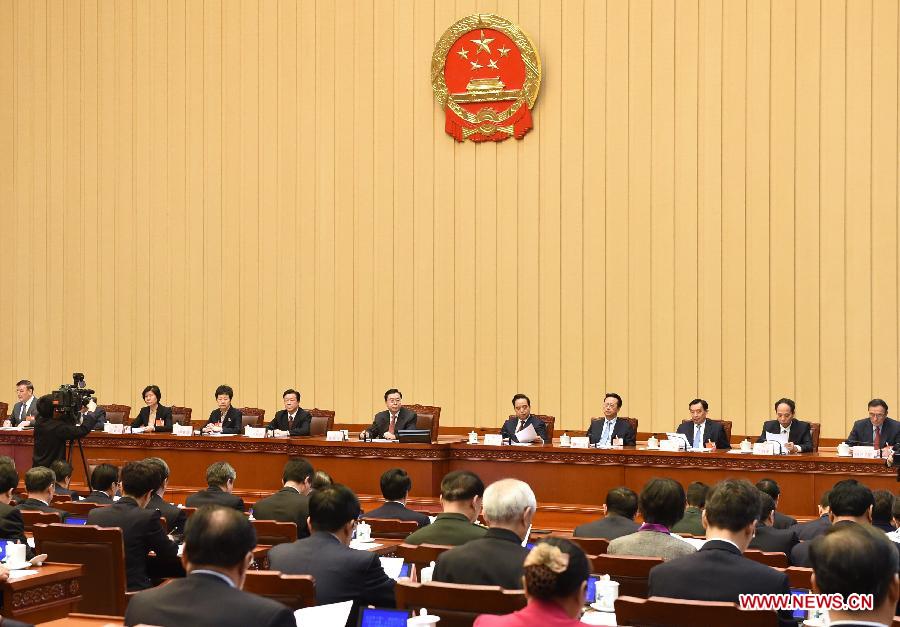Environment law ripe for revision
 0 Comment(s)
0 Comment(s) Print
Print E-mail Xinhua, March 10, 2014
E-mail Xinhua, March 10, 2014
|
|
| Zhang Dejiang (C), executive chairperson of the presidium of the second session of the 12th National People's Congress (NPC), presides over the second meeting of the presidium at the Great Hall of the People in Beijing, capital of China, March 9, 2014. (Xinhua/Li Xueren) |
The government will tighten environmental legislation and force polluters to pay compensation following renewed blasts of toxic air, the nation's top legislator Zhang Dejiang said yesterday.
As smog continued to shroud Beijing, Zhang, chairman of the National People's Congress Standing Committee, said in a report to the legislature's annual session that firms should be made to account for the environmental damage they cause.
He said revisions to the law are being prepared, giving hope that the long-debated environmental protection law will be revised this year after several unsuccessful attempts.
Changes are also needed to strictly supervise emissions and control pollution at the source, Zhang said.
Heavy pollution has lingered over much of northern China through February and March, leading to an increase in the number of people admitted to hospital, and forcing schools to cancel outdoor events. Heavy smog has also been blamed for disrupting air transport and retarding crop growth.
Improved laws and regulations will help to tighten oversight of pollutant discharges, and ensure those responsible for illegal practices are suitably punished, Zhang said.
In his government work report to the NPC last Wednesday, Premier Li Keqiang "declared war" on pollution, vowing to fight it with the same determination the country battled poverty.
Revising the environmental protection law, which took effect in 1989, has been deemed central to curbing pollution. However, the past three attempts to amend it have been unsuccessful.
Fighting pollution has long been top of the government's agenda, but a spell of smog that enveloped about 15 percent of the country a week ahead of the annual parliamentary session added urgency to the matter. Beijing at one point recorded "beyond-index" measurements of particulate matter.
Zhang said prominent environmental problems, such as air, water and soil pollution, are of great public concern and said protecting the environment is an urgent and complex task that requires long-term effort.
The NPC Standing Committee will investigate ways to prevent and control soil pollution, and seek to solve key environmental problems and strengthen ecological conservation, he said.
Ouyang Song, a member of the NPC Standing Committee, echoed Zhang's comments.
"We should improve the incorporation of environment impact assessment in approving future projects and invite the public to join environmental assessments," he said.






